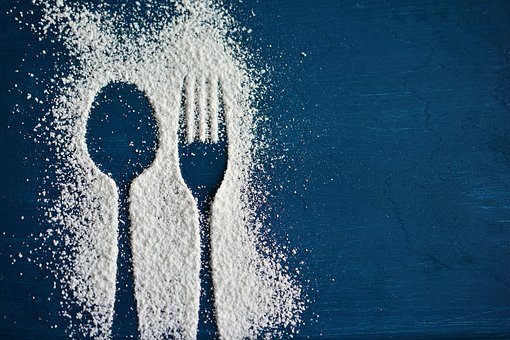Reducing sugar can be one of the best things you can do for your health!
- You Can Get Addicted
Consuming sugar is linked to causing a surge of the feel-good chemicals in your brain (serotonin and dopamine). This happens in the same way as when someone uses drugs, such as cocaine, and just like the effects of using drugs, your body will start craving more after the first ‘hit’. You then become addicted to the feeling so that all you want to do is get more and more of it. Before you know, you’re already addicted to sugar.
- Insulin Levels Rise
Your body is typically not meant to release so much insulin, but this is not the case when you consume too much sugar. After eating a lot of sugar, the pancreas must release a lot of insulin to compensate. The main job of insulin is to stabilise sugar levels in the body by absorbing the excess glucose from the blood. The major problem here is that the production of insulin in large amounts for a long time leads to insulin resistance which is linked to obesity. As if that’s not enough, if the pancreas works in overdrive for extended periods, there is an increased risk of developing type 2 diabetes.
- Obesity
Glucose provides energy for the body, but if it’s in excess, the body will store the extra glucose in the muscles, liver, or as fat. Glucose storage would work well only if there were a food shortage, but this problem is not so widespread in this era. Therefore, taking in too much sugar means excess glucose, is stored as fat, leading to weight gain and obesity in the long run.
- Insomnia
Consuming too much sugar at night causes an energy rush at a time when your body should be slowing down as it gets prepared to sleep. This means that you might find yourself staying awake for extended periods depending on how your body responds to the excess sugar. Therefore, if you have trouble getting a good night’s sleep, you might want to cut down your sugar consumption.
- Low Energy
Glucose is important for the production of energy in the body. However, there is a need to ensure that blood sugar levels in your body are balanced. If you binge on sugary snacks, the pancreas will then release insulin to facilitate the movement of glucose to the cells. This makes you experience an energy rush. After the energy has been used up, a ‘dip’ in energy will occur, and the body will start demanding more sugar to cover the deficit in energy. This will make you feel sluggish as if you have no energy left. It’s obvious, the more sugar you eat, the higher the energy peak, and that leads to a serious energy dip.
- Premature Aging
Consuming too much sugar can result in premature aging and wrinkles as a result of damage to your skin’s elastin, collagen, and proteins. As if that’s not enough, too much sugar may also lead to an imbalance of the female menstrual hormones. Such an imbalance has been known to cause acne along the jawline.
- Cellular Aging
Chromosomes have telomeres which are molecules that are responsible for holding your genetic information. Telomeres act as protective caps, to prevent chromosomes from fusing together or deteriorating. As you grow older, telomeres naturally start to shorten which results in aging and the malfunctioning of body cells. Even though this is a natural process, unhealthy lifestyle choices have been known to speed it up. A high intake of sugar accelerates the shortening of the telomeres, causing cellular aging.



